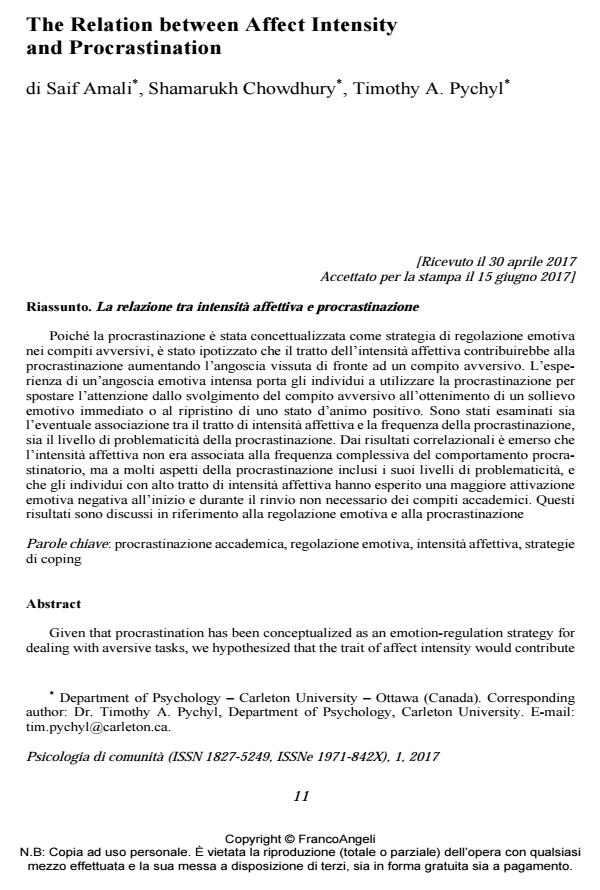The Relation between Affect Intensity and Procrastination
Journal title PSICOLOGIA DI COMUNITA’
Author/s Saif Amali, Shamarukh Chowdhury, Timothy A. Pychyl
Publishing Year 2017 Issue 2017/1
Language English Pages 13 P. 11-23 File size 210 KB
DOI 10.3280/PSC2017-001002
DOI is like a bar code for intellectual property: to have more infomation
click here
Below, you can see the article first page
If you want to buy this article in PDF format, you can do it, following the instructions to buy download credits

FrancoAngeli is member of Publishers International Linking Association, Inc (PILA), a not-for-profit association which run the CrossRef service enabling links to and from online scholarly content.
Given that procrastination has been conceptualized as an emotion-regulation strategy for dealing with aversive tasks, we hypothesized that the trait of affect intensity would contribute to procrastination by intensifying the personal distress experienced when faced with an aversive task. The experience of intense emotional distress shifts individuals’ priority from the practical aspects of making progress on an aversive task to the primacy of immediate emotional relief or mood repair through procrastination. We examined whether or not participants’ underlying trait affect intensity levels were related to the frequency of self-reported procrastination, as well as how much procrastination was problematic for them. The correla-tional results revealed that affect intensity was not related to the overall frequency of pro-crastination behaviour, but that it was correlated with many aspects of procrastination including the severity of procrastination problems, and that individuals high on trait affect intensity experienced more negative emotional arousal when initiating and while needlessly delaying academic tasks. These results are discussed in relation to emotion regulation and procrastination.
Keywords: Academic procrastination, emotion regulation, affect intensity, coping strategies
Saif Amali, Shamarukh Chowdhury, Timothy A. Pychyl, The Relation between Affect Intensity and Procrastination in "PSICOLOGIA DI COMUNITA’" 1/2017, pp 11-23, DOI: 10.3280/PSC2017-001002